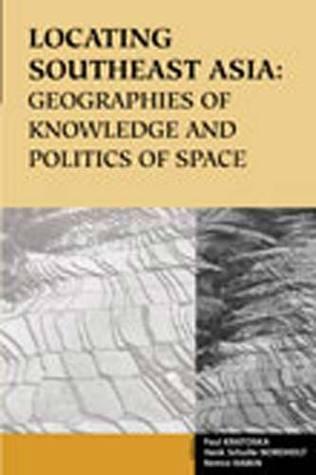
Locating Southeast Asia: Geographies Of Knowledge And Politics Of Space
まだ評価がありません
形式
ペーパーバック
ページ数
326
言語
英語
公開されました
Jan 1, 2005
出版社
Ohio Univ Pr
ISBN-10
0896802426
ISBN-13
9780896802421
説明
Southeast Asia is a region marked by a rich tapestry of diverse cultures and histories, yet it has often eluded a cohesive political identity. Henk Schulte Nordholt delves into the complexities of this multifaceted area, exploring how various geographical, social, and political dynamics shape the understanding of its identity. Through detailed analysis, the author addresses the historical fragmentation that has influenced Southeast Asia's development both as a collection of nations and as a space for unique cultural interrelations.
The book examines the intricate interplay between knowledge and politics, shedding light on the ways in which external forces have impacted local geographies. Schulte Nordholt engages with the historical narratives and contemporary issues that inform the region's identity, arguing for a nuanced appreciation of the political spaces that exist amidst its diversity. The insights provide a framework for understanding not just the past but also the evolving nature of Southeast Asian societies today.
By navigating through stories of resistance, adaptation, and collaboration, Schulte Nordholt invites readers to reconsider the conventional wisdom surrounding Southeast Asia. The exploration of spatial politics and knowledge-sharing illustrates the potential for new connections and evolving identities within a landscape characterized by both unity and fragmentation. This work contributes to a deeper understanding of the region, encouraging a dialogue that recognizes Southeast Asia's distinct place in global discourse.
The book examines the intricate interplay between knowledge and politics, shedding light on the ways in which external forces have impacted local geographies. Schulte Nordholt engages with the historical narratives and contemporary issues that inform the region's identity, arguing for a nuanced appreciation of the political spaces that exist amidst its diversity. The insights provide a framework for understanding not just the past but also the evolving nature of Southeast Asian societies today.
By navigating through stories of resistance, adaptation, and collaboration, Schulte Nordholt invites readers to reconsider the conventional wisdom surrounding Southeast Asia. The exploration of spatial politics and knowledge-sharing illustrates the potential for new connections and evolving identities within a landscape characterized by both unity and fragmentation. This work contributes to a deeper understanding of the region, encouraging a dialogue that recognizes Southeast Asia's distinct place in global discourse.